Publications
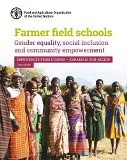
Farmer field schools, gender equality, social inclusion and community empowerment Experiences from Uganda - Karamoja sub-region, case study
08/12/2020
The main objective of this exercise has been to collect and analyze the experiences of Farmer field schools (FFS)/Agro-pastoralist field school (APFS) members, graduates, and practitioners in relation to gender equality, social inclusion, and individual and community empowerment, as well as changes to these as a result of participation in an FFS/APFS. 107 pp.
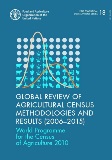
Global review of agricultural census methodologies and results (2006 – 2015) World Programme for the Census of Agriculture 2010
01/12/2020
The publication is the second and last publication of the WCA 2010 round and reviews the various methodologies and practices regarding census modalities, enumeration methods and techniques (including use of technology), census frames, coverage and scope, data processing and tabulation, data quality and dissemination. In addition, it portrays an international comparison of census results, with key structural variables that are not available elsewhere. 242 pp.
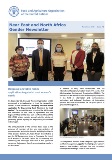
Near East and North Africa Gender Newsletter, November 2020 - Issue #3
30/11/2020
The third issue of the RNE Gender Newsletter features stories from Lebanon, West Bank Gaza, Sudan, Syria and Yemen that focus on gender dimensions of field programmes and on sharing impactful human stories. In addition, the newsletter provides an opening article highlighting the mobile app competition that was done by FAO in collaboration with Arab Women Organization (AWO) in Cairo. 9 pp.
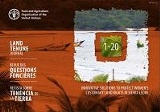
Innovative solutions to protect women’s customary land rights in Sierra Leone
02/11/2020
This paper summarizes the findings from three related phases of FAO's Voluntary Guidelines on the Responsible Governance of Tenure of Land, Fisheries and Forests in the Context of National Food Security (VGGT) programme, implemented as a pilot project in 2018. The methodology used relied on the context analysis of the critical aspects influencing and hindering women ́s land rights. 30 pp.
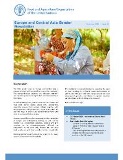
FAO Europe and Central Asia Gender Newsletter, November 2020 - Issue #1
01/11/2020
This publication explores and discusses women’s and men’s experiences in agriculture and food security in the region. 5 pp.

Empowering Women and Youth to Improve Household Food and Nutrition Security in Egypt
22/10/2020
This project was designed to foster the creation of a food-secure environment that would improve access to food and increase local knowledge of nutrition primarily to women and children. The overall objectives of the project were to build capacities, to improve and increase food production and income generating activities, to raise awareness of health and nutrition, and to create a monitoring and evaluation system to track the results of project interventions. 2 pp.

Accessing land in Ghana for agricultural investment: Advice for women and youth
21/10/2020
The purpose of this brief is to provide advice for women and youth on how to access farmland in Ghana. Following the appropriate process can help them identify and address potential problems and avoid conflicting claims and litigation. It can also help them to ensure that the rights of all legitimate tenure rights-holders are respected. 20 pp.

Financial services for women
20/10/2020
The purpose of this study was to analyse the position of women in the maize and bean value chains in Rwanda, as well as the current and potential role of financial service providers in strengthening the positioning of women in these chains. The study used the women’s economic empowerment framework for the conceptual analysis, while similarly looking at overall financial inclusion indicators. 92 pp.
